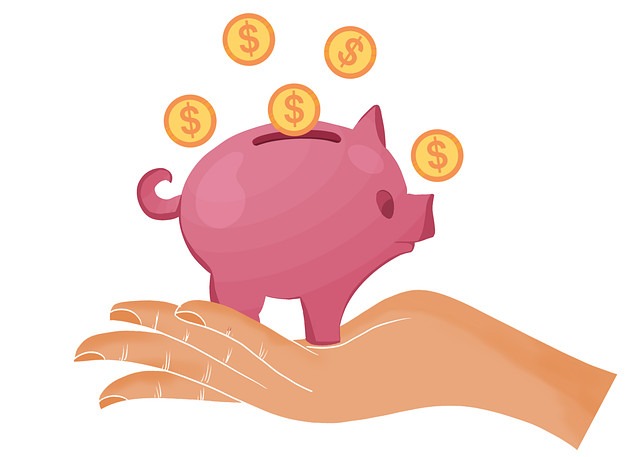Introduction
Year 2024, where we’re all trying to stretch a dollar a bit further. Everything’s more expensive, and let’s be honest—those dollars don’t go as far as they used to, reason to look for ways to save money.
Whether you’re trying to bulk up your savings, knock down some debt, or just make it through the month without eating ramen every night, we’ve got some simple tips to help you keep more money in your pocket.
Why Do We Need to Save Costs This 2024?
It’s no secret—everything’s getting pricier, and it’s not just in your head. Inflation’s been on a tear, and that means our paychecks aren’t stretching as far.
So, if you’re feeling the pinch, you’re not alone. But saving money isn’t just about scrimping and cutting corners; it’s about being prepared for whatever life throws at you.
That extra cash you save could be the buffer you need when the unexpected happens—like a car repair or a surprise bill.
10 Ways to Save Money Every Month.
Discover 10 proven ways to save money every month in 2024. Learn practical tips to cut costs, boost savings, and manage your finances effectively. let’s go!
1. Create a Budget
Creating a budget is like setting a financial GPS. Without it, you’ll just keep going in circles, wondering where all your money went.
This is the first on our list of ways to save money.
Dave Ramsey, the financial guy, always says, “A budget is telling your money where to go instead of wondering where it went.” Start by jotting down everything—your income, rent, groceries, even that daily coffee.
Once you see where your money’s going, it’s a lot easier to figure out where you can save.
2. Cut Unnecessary Subscriptions
 Ever signed up for a free trial and forgot to cancel? Yeah, we’ve all been there. Those subscriptions can sneak up on you.
Ever signed up for a free trial and forgot to cancel? Yeah, we’ve all been there. Those subscriptions can sneak up on you.
Lauren Lyons Cole, a financial planner, suggests taking a good, hard look at what you’re actually using. If you’re paying for five streaming services but only watching one, it might be time to ditch the others.
Go through your bank statement and see what you can cut—chances are, there’s something on there you didn’t even know you were paying for.
3. Cook at Home
Eating out is fun, but man, those restaurant bills add up fast. Cooking at home isn’t just cheaper—it’s also healthier and lets you control what you’re eating.
Chef Kevin Gillespie points out that making your meals at home gives you a lot more bang for your buck. Plus, leftovers make great lunches.
Plan your meals, make a list, and stick to it when you hit the grocery store. You’ll be surprised at how much you save.
4. Use Public Transportation
Gas prices got you down? Consider ditching the car for public transport.
Financial analyst Sarah Whittaker says that using the bus or train can save you a ton on gas, parking, and car maintenance.
And if public transportation isn’t an option, maybe try carpooling or biking. Not only will you save money, but you might also get a little exercise in too.
5. Shop with a List
We’ve all been there—going into the store for one thing and coming out with a cart full of stuff we didn’t need.
The best way to avoid this? Make a list. Behavioral economist Richard Thaler says it helps curb those impulse buys.
Before you head out, write down what you need and stick to it. It’s a simple trick, but it works.
6. Take Advantage of Discounts and Coupons
Who doesn’t love a good deal? Emily Guy Birken, a financial planner, suggests taking advantage of coupons and discounts whenever you can.
It might seem like a hassle, but those savings can really add up.
Sign up for store loyalty programs, use cashback apps, and don’t be shy about asking for a discount—you’ve got nothing to lose.
7. Reduce Utility Bills
 Utility bills creeping up? Energy consultant Paul Wood says simple changes can make a big difference.
Utility bills creeping up? Energy consultant Paul Wood says simple changes can make a big difference.
Turn off the lights when you leave a room, unplug stuff when you’re not using it, and switch to energy-efficient appliances if you can.
These small changes can add up to big savings over time.
8. Automate Your Savings
Let’s face it—saving money isn’t always easy, especially when there’s always something tempting to spend it on.
Financial coach Ramit Sethi recommends automating your savings. Set up an automatic transfer from your checking to your savings account each payday.
That way, the money’s saved before you even have a chance to miss it.
9. Limit Credit Card Use
 Credit cards are great—until the bill comes. Credit counselor Beverly Harzog advises using them sparingly and always paying off the balance in full.
Credit cards are great—until the bill comes. Credit counselor Beverly Harzog advises using them sparingly and always paying off the balance in full.
If you’re someone who tends to overspend, try sticking to cash or a debit card instead. It’s harder to part with real money than to swipe a card.
10. Review Your Insurance Policies
Insurance can be a major expense, but are you sure you’re getting the best deal? Insurance broker Dan Walker says it’s a good idea to shop around and compare rates regularly.
You might find you’re paying for more coverage than you need, or you could save by bundling your policies.
It’s worth the effort—those savings could be significant.
Conclusion
Saving money doesn’t have to mean sacrificing all the things you love. With a few smart changes, you can keep more of your hard-earned cash without feeling deprived.
So, whether it’s cooking more meals at home, cutting unnecessary subscriptions, or just being more mindful about your spending, these tips can help you find the best ways to save money in 2024.
Read Also: 9 Ways Your Money Wallet Can Help You Budget Better
FAQs On Ways To Save Money Every Month
1. What’s the easiest way to start saving money?
Start with a budget. Once you know where your money’s going, you’ll find it easier to spot areas where you can save.
2. Can I save money without giving up fun?
Absolutely! It’s all about priorities. Focus on what really matters to you and cut back on the rest.
3. How much should I save each month?
Aim to save 20% of your income if you can, but even starting with a smaller amount is better than nothing.
4. Are coupons really worth it?
They sure are! Coupons and discounts can lead to serious savings, especially if you combine them with sales.
5. Should I save or pay off debt first?
It depends, but generally, paying off high-interest debt first is a smart move while still setting aside some savings.


